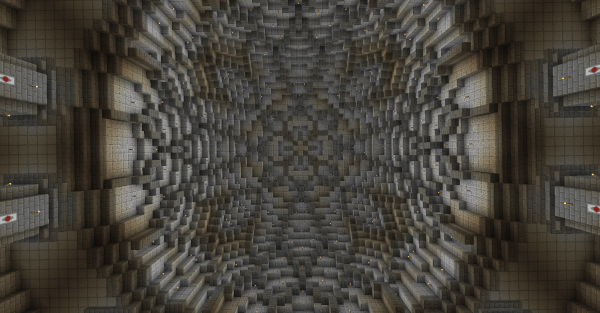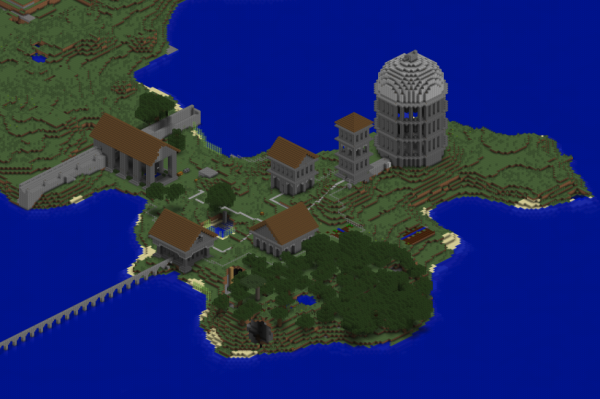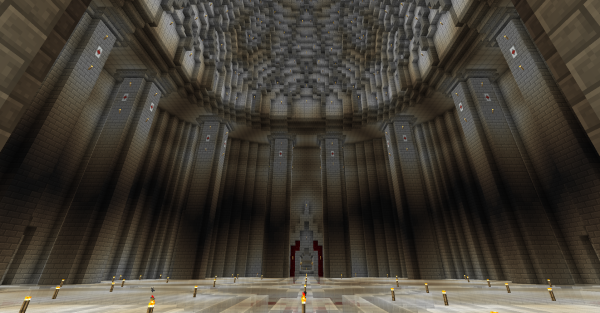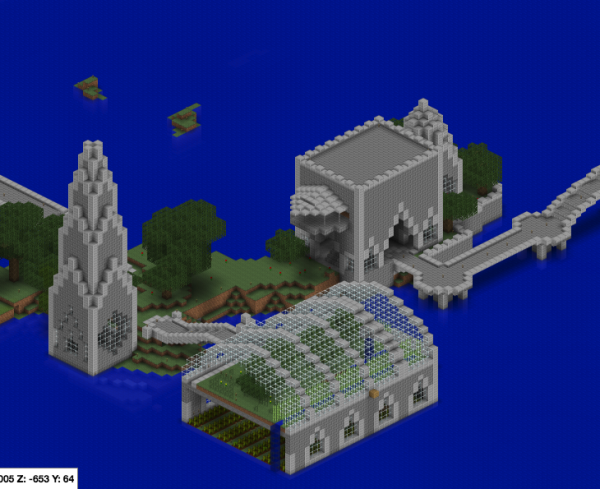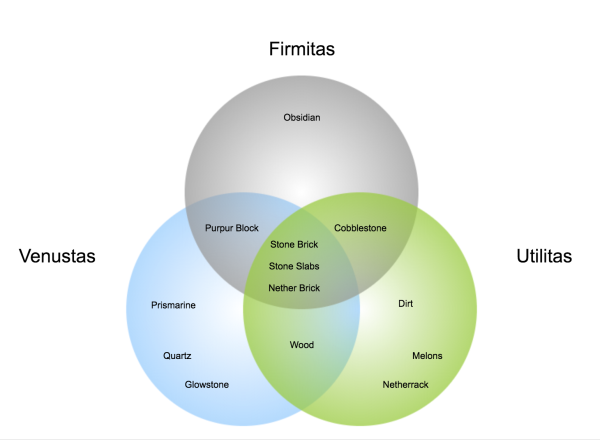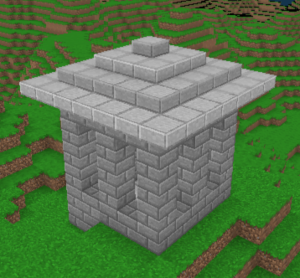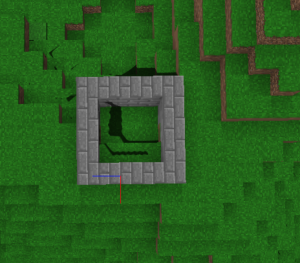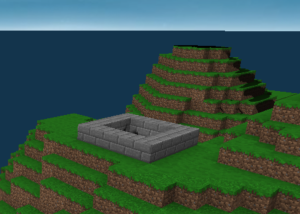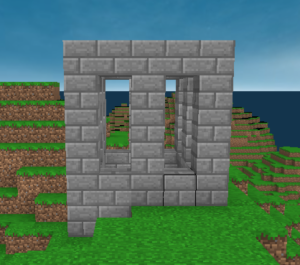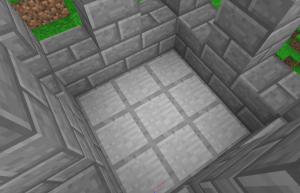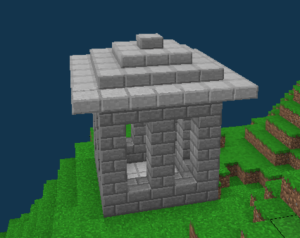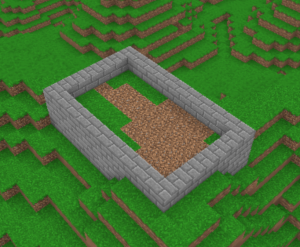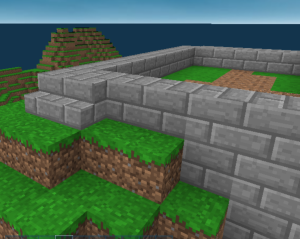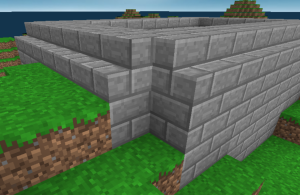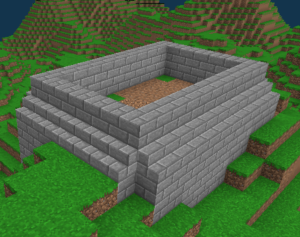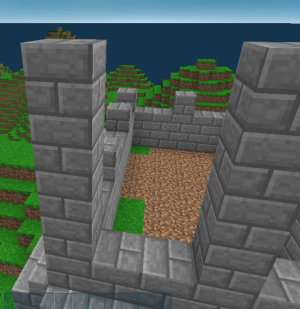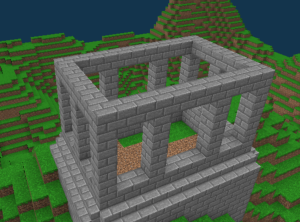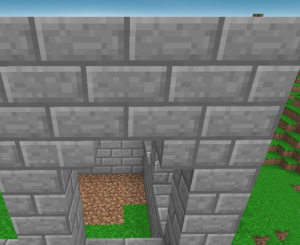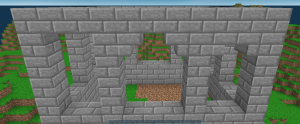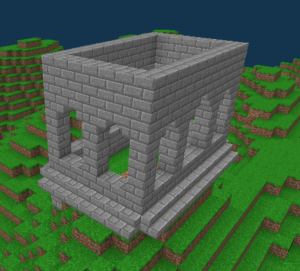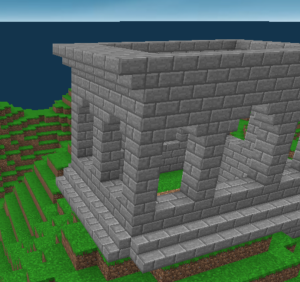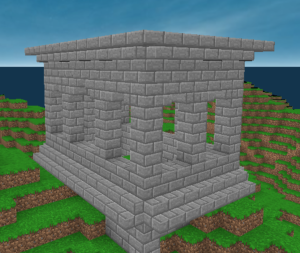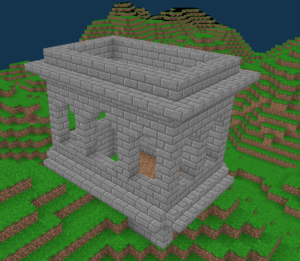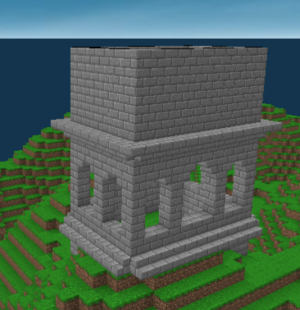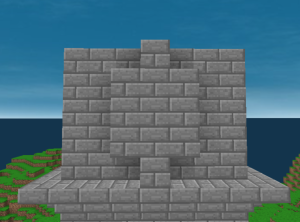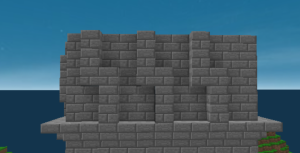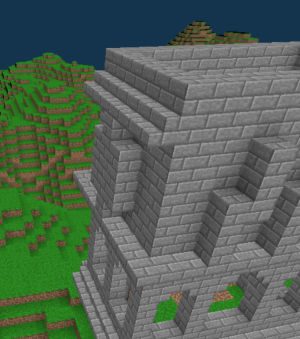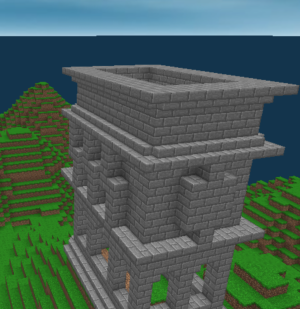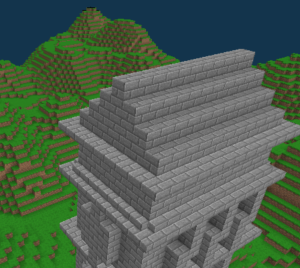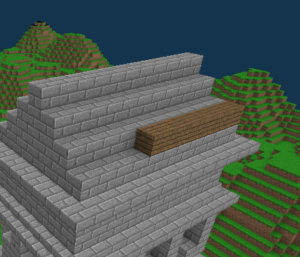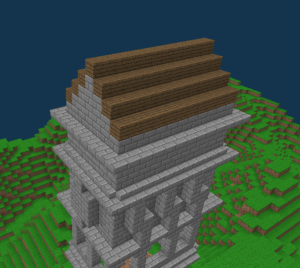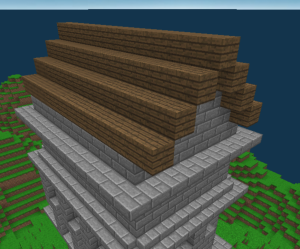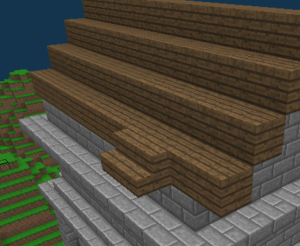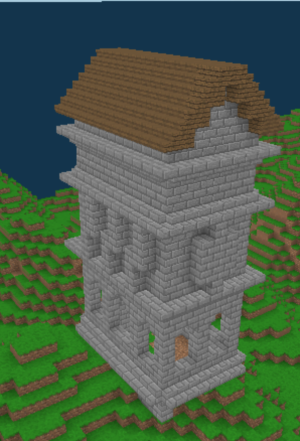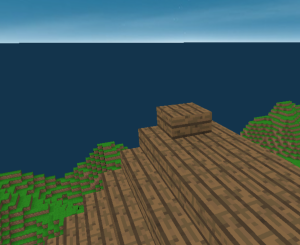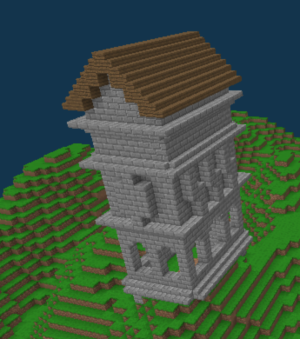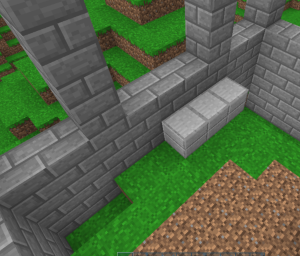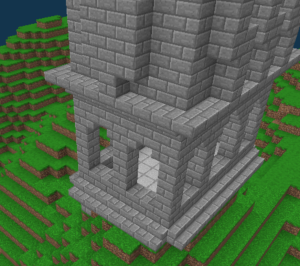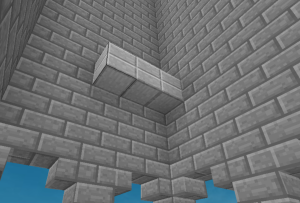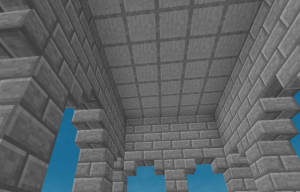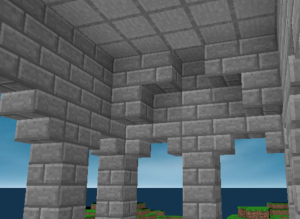Viverian Architecture: Difference between revisions
A. Pippenger (talk | contribs) No edit summary |
A. Pippenger (talk | contribs) |
||
| Line 233: | Line 233: | ||
[[File:Vivinter34.png|300px|]] | [[File:Vivinter34.png|300px|]] | ||
===Second Floor=== | |||
| Line 248: | Line 251: | ||
[[File:Vivinter37.png|300px|]] | [[File:Vivinter37.png|300px|]] | ||
==Advanced== | ==Advanced== | ||
Revision as of 01:02, 21 July 2018
Overview
Viverian Architecture is a Minecraft building style used by many players on SimPvP and similar anarchy and survival servers. The style has developed through years of players attempting to balance three qualities: durability, affordability, and beauty. Viverian Architecture relies primarily on stone brick and stone slabs, as these materials are thought to provide the ideal mixture of the three qualities.
Viverian Architecture takes inspiration from historical Vitruvian architecture and its three virtues: firmitas, which becomes durability, utilitas, which becomes affordability, and venustas, which translates to beauty. For these same three reasons, Vivierian Architecture draws heavy inspiration from Greco-Roman and Neoclassical architecture of Earth. Echoing real history, Viverian Architecture is heavily associated with the Imperial Architecture of SimPvP's distant past.
The stylistic and material choices of Viverian Architects have been criticized by various players, but it has determined that no major changes could be made without sacrificing at least one of the three virtues.
Guide
stuff will go in here
Basic
Basic Viverian Architecture is designed to provide a simple but respectable house to a builder of good taste but limited skills or resources. It is not designed to be better than true architecture, but only to be better than a dirt or cobble cube house.
Foundation
The fundamental unit of Basic Viverian Architecture is a cobblestone square of an odd width and length (i.e. 5, 7, 9).
Windows
Simple Viverian windows are often 1 wide by 3 tall gaps between thin stone pillars, based on a simplified version of classical Greek pillars.
Floor
A Basic Viverian floor will often be plain stone slabs.
Roof
The ideal roof material for Basic style is stone slabs, usually in a simple pyramidal shape.
Intermediate
Intermediate Viverian Architecture is meant to provide guidelines for pleasing, yet still fairly simple, house designs. Houses of this type can be produced quickly and cheaply relative to their size and quality, making them convenient to build on survival servers.
Foundation
The typical Intermediate Viverian house uses a rectangular foundation laid out roughly according to the golden ratio. A 7 wide by 11 long foundation is common. To be considered better than Basic, the foundation must be supported by stone brick stairs, displayed below.
These stairs, in turn, must be supported by stone bricks beneath them.
Once the support is complete, raise the core foundation by 1 meter vertically.
Windows
Intermediate windows can be simple square 1 by 3 holes as in Basic, but they are often slightly more complex. The typical Intermediate window is also shaped roughly according to the golden ratio, often 3 by 4 or 2 by 4. Not all windows in a house must be the same width. A 2 wide window may be placed beside a 3 wide window.
After enclosing the windows, place upside down stairs at the top to create arches.
Turn all the windows into arches.
Border
Above the windows, build the wall up by 2 meters.
After a 1 meter vertical rise, place a layer of upside down stairs. Borders of this type are an integral part of Intermediate style.
After completing the stairs, build up the wall by an additional meter.
Then add several more meters of stone brick walls.
Reliefs
On these blank sections of walls, reliefs can be built. Below is displayed a typical frontal relief. This particular shape is known as a Pip.
On the sides of buildings, reliefs in the shape of S or Z are more common.
Once the reliefs are complete, enclose them in an additional support border of stairs.
Roof
Build up the walls by an additional few meters, then place another border layer of upside down stairs. The roof will go above this layer.
The roof of an Intermediate style house is often a triangular prism, built around a core stone ceiling.
Atop the stone ceiling, place a layer of wood for the roof, ideally spruce planks.
Make sure the spruce overhangs the stone walls by at least 1 meter horizontally to the front and back.
Then, place spruce stairs atop the roof.
This will create a fairly realistic roof shape.
At the peak of the roof, place spruce slabs. This will improve the appearance of the roof, and help prevent monster spawns.
Interior
Intermediate houses should have slightly complex interiors.
Floor
The floor of an Intermediate house is usually simple spruce planks or stone slabs.
Second Floor
A second floor should be placed a few meters above the windows.
Beneath this floor, place support arches for a more realistic and decorated appearance.
Advanced
good shit
History
more stuff will go here
Pre-History
Chain City
Cindisfarne
The Empire
Stonetown
Ascaris
The Order
The Principate
Quinsi
The League
Nocoords?
fuck
I'm gonna take a break cause it's hard to write an article this pretentious. I swear to god I have so much actual shit to do and I can't believe I'm wasting my life on this
